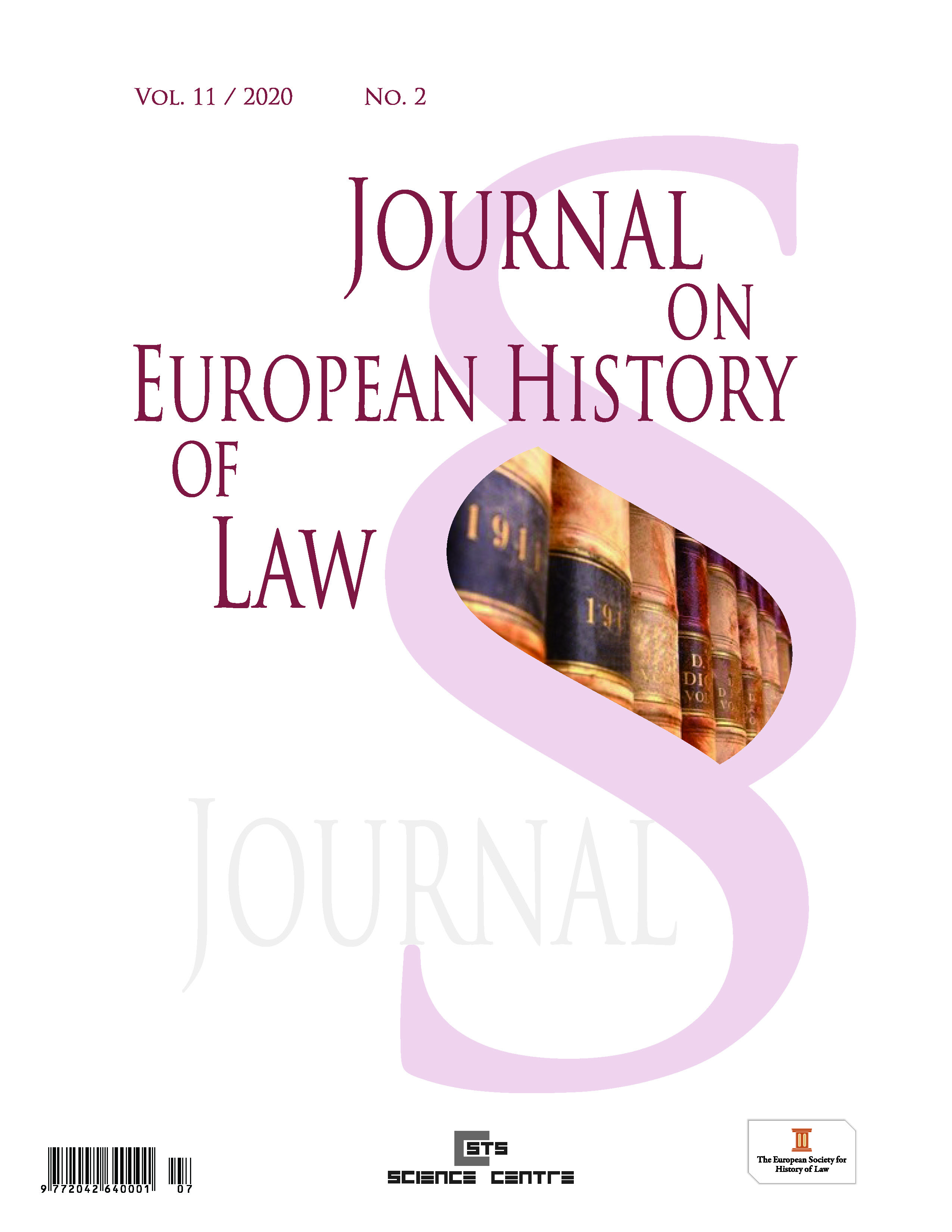The Free City of Danzig and its Higher Administrative Court (1920–1935)
The Free City of Danzig and its Higher Administrative Court (1920–1935)
Author(s): Julian LubiniSubject(s): History, Law, Constitution, Jurisprudence, Public Administration, Interwar Period (1920 - 1939)
Published by: Evropská společnost pro právní dějiny, z.s.
Keywords: Free City of Danzig; League of Nations; Third Reich; Public administration; Administrative jurisdiction; Administrative law; Tax Law; Association law; Right of assembly; Ernst Ziehm; Max Dolle;
Summary/Abstract: Judicial protection against administrative measures has long represented the core of the European rule of law. This control mechanism was nothing new to the Free City of Danzig, which had previously belonged to Prussia and been subject to its modern administrative jurisdiction. However, the system in Danzig had to be completely reorganised in 1920 when the city was transformed into an autonomous state according to the Treaty of Versailles. While the legal culture in the Free City of Danzig has thus far received only occasional attention in academic circles, the administrative jurisdiction of the city-state has been entirely overlooked and much has been forgotten. This is perhaps because Danzig’s special constitutional status was a popular subject of academic debate at the time; in addition, the Free State of Danzig ultimately disappeared from the agenda of international politics with the dissolution of the League of Nations on 18 April 1946. Nevertheless, this topic is now attracting renewed interest among contemporary researchers. The Danzig Higher Administrative Court, its legal basis, its organisation, its rulings and the political debate surrounding the court itself all shed light on an intriguing episode in the history of Danzig, one that reflects how the Free State upheld the rule of law and reveals how the court even struck down measures taken by the National Socialists. Since very little is known about the Danzig Higher Administrative Court and its files are believed to have been lost in the war, it was necessary to draw from very scattered and often poorly accessible sources in order to provide the following general overview.
Journal: Journal on European History of Law
- Issue Year: 11/2020
- Issue No: 2
- Page Range: 2-15
- Page Count: 14
- Language: English

